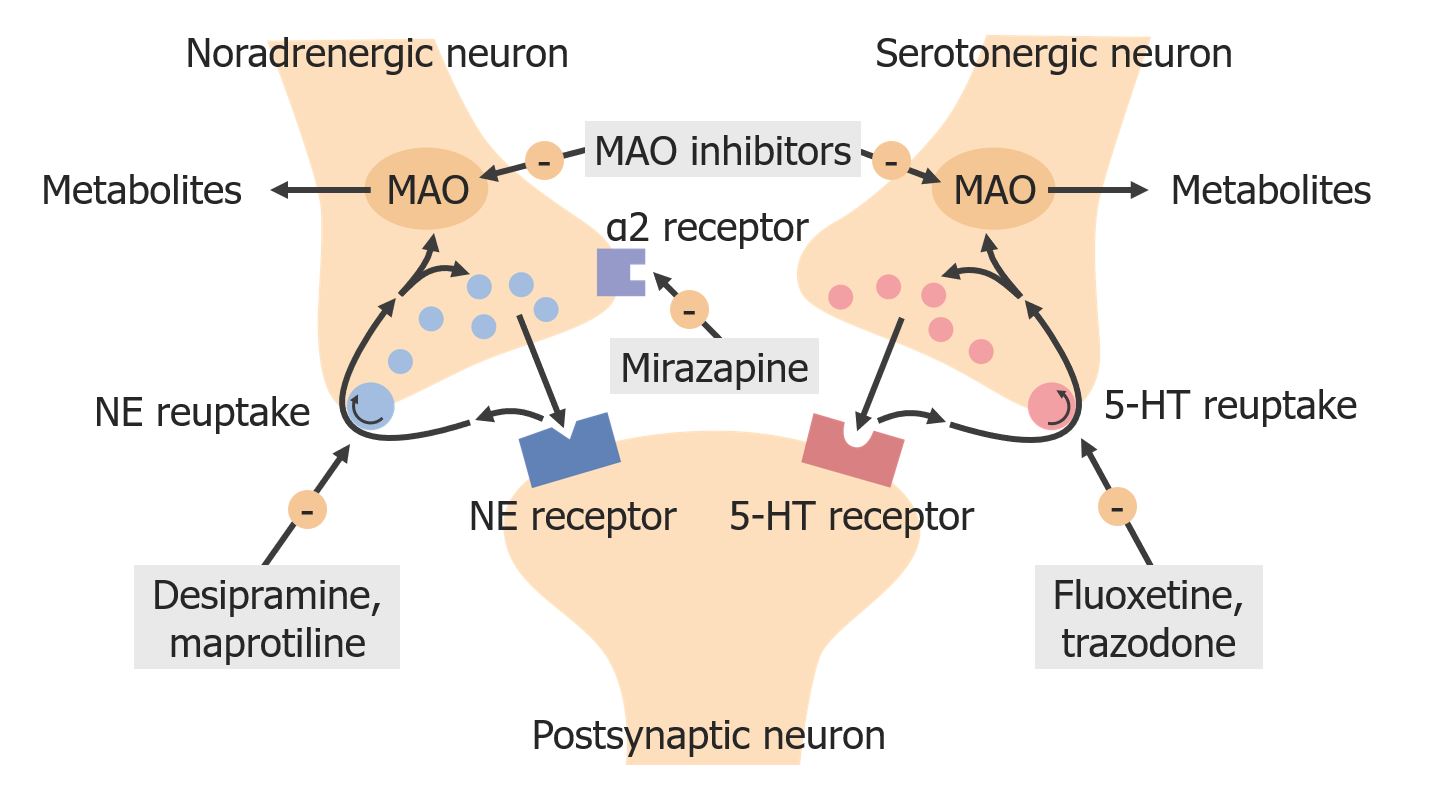Playlist
Show Playlist
Hide Playlist
Tricyclic Antidepressants (TCAs) – Antidepressants
-
Slides TCAs Antidepressants.pdf
-
Reference List Pharmacology.pdf
-
Download Lecture Overview
00:01 Let's move on to the tricyclic antidepressants. 00:04 These are very well-known agents. 00:06 TCAs inhibit the reuptake of norepinephrine and serotonin. 00:11 Now, they undergo first pass metabolism, so a lot of the drug ends up getting dumped in the bowel before it even reaches the target organ. 00:19 TCAs have a high volume of distribution and they are not dialyzable, so these are important considerations when we're using TCAs. 00:27 TCAs also have a blocking effect on peripheral tissues, so they do have side effects. 00:34 Now, think about how they work. 00:36 They will block histamine, they will block muscarinic receptors. 00:42 They will block adrenergic receptors, specifically alpha-adrenergic effects. 00:47 And this results in multiple side effects and we'll go through them right now. 00:53 With respect to the H1 antagonism, you can get sedation, drowsiness, and weight gain. 00:59 With acetylcholine antagonism, you can get blurred eyes, dry mouth, and constipation. 01:05 In terms of the side effects, virtually every patient I've ever put on a TCA complains of dry mouth. 01:12 In terms of alpha-1 antagonism, this results in postural hypotension where people feel lightheaded when they move from a sitting position to a standing position. 01:23 You can also have alpha-2 antagonism. 01:26 They will complain of dizziness and also a reflex tachycardia, so their heart rate climbs when they stand up. 01:32 Now, the older drugs have more side effects than newer drugs have fewer side effects. 01:37 So, when you take a look at the drugs on this spectrum here, you can see that amitriptyline is the oldest of the drugs, first used in the 1960s, and the newer drugs like desipramine have fewer side effects. 01:50 The norepinephrine uptake inhibition can cause dry mouth, urinary retention, and tremor. 01:58 The reuptake of serotonin can cause GI disturbances, and the antagonism of serotonin can cause nausea. 02:09 One of the big concerns that I always have with tricyclic antidepressants is that your seizure threshold is reduced. 02:16 So, patients are going to have an increased risk of seizure that is also seen in the monoamine oxidase inhibitors. 02:23 There is an additive effect with alcohol or ethanol. 02:27 Depressive patients are at high risk for ethanol abuse, so TCAs become particularly problematic in those group of patients. 02:35 The other issue that we have to be very aware of with TCA is that they may antagonize methyldopa and clonidine. 02:41 So, patients who are taking these drugs, methyldopa or clonidine, whether it's for blood pressure or for post-menopausal symptoms, can have a significant interaction between the two sets of drugs. 02:55 Now, there are three C's of TCA toxicity. 02:59 Coma, convulsions, and cardiotoxicity. 03:03 So, if you remember this about the TCAs, the three C's are very, very important.
About the Lecture
The lecture Tricyclic Antidepressants (TCAs) – Antidepressants by Pravin Shukle, MD is from the course CNS - Pharmacology.
Included Quiz Questions
What is a feature of tricyclic antidepressants?
- Lower seizure threshold
- Insignificant first-pass metabolism
- Low volume of distribution
- Low side effect profile
- Dialyzable
Which mechanism of action and side effects are matched INCORRECTLY?
- Alpha-2 antagonist: alertness, blurred vision
- Histamine antagonist: sedation, drowsiness, weight gain
- Serotonin antagonist: nausea
- Alpha-1 antagonist: postural hypotension
- Acetylcholine antagonist: blurred vision, dry mouth, constipation
Customer reviews
5,0 of 5 stars
| 5 Stars |
|
1 |
| 4 Stars |
|
0 |
| 3 Stars |
|
0 |
| 2 Stars |
|
0 |
| 1 Star |
|
0 |
1 customer review without text
1 user review without text




